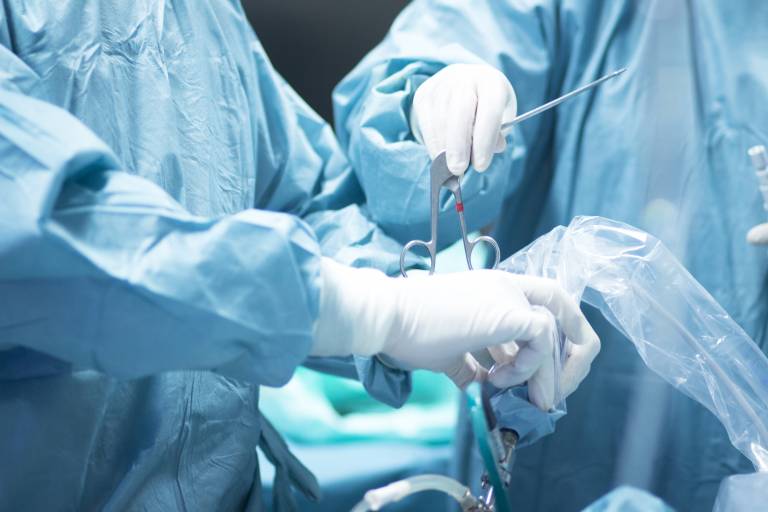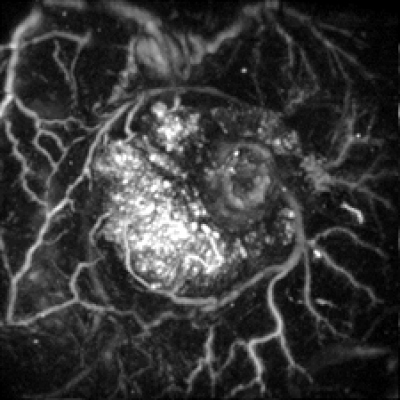Shedding light on liver surgery with photoacoustics
Liver cancer affects approximately 1.4 million people globally each year. Surgery is the main form of treatment and around 2,300 resections are performed annually in the UK.

27 September 2018
Laparoscopic surgery is a minimally invasive procedure, however, it is technically challenging. Due to the small incision, surgeons have limited vision which increases the risk of cancerous tissue going undetected.
A £493,957 Cancer Research UK grant awarded to Professor Paul Beard, Prof Brian Davidson and colleagues has the potential to boost outcomes for liver cancer surgery. Their research will develop a pioneering new imaging technique, known as photoacoustic imaging (PAI), for use in laparoscopic liver surgery for the first time. The heightened image contrast provided by PAI should make the site and extent of the cancers easier for surgeons to detect and guide their surgical excision.

PAI of a colorectal tumour implanted subcutaneously in a mouse
PAI has never before been applied in this context. By improving the efficacy of laparoscopic liver cancer surgery and decreasing the associated risks, more patients could access this form of treatment.
Related links:
 Close
Close

